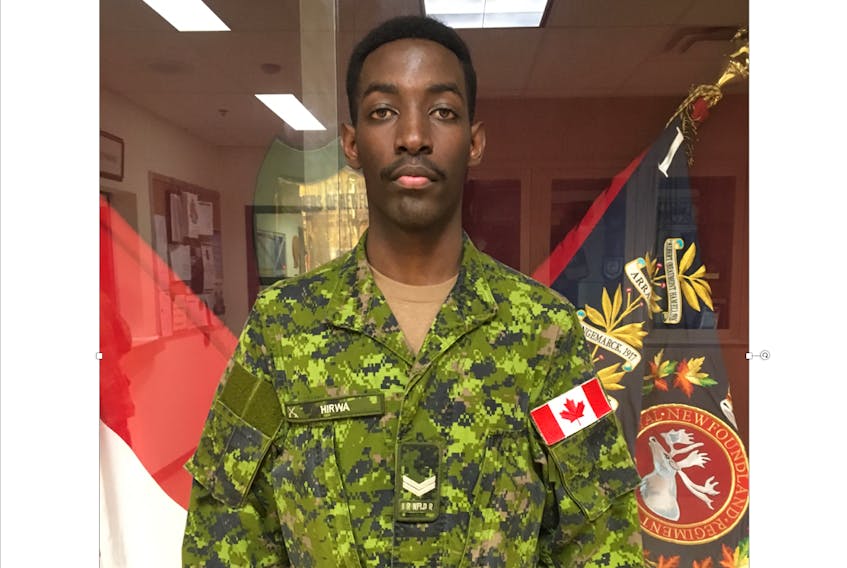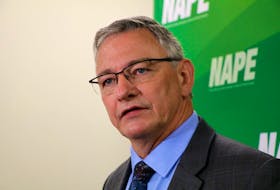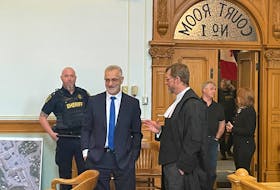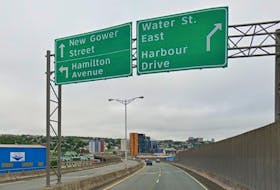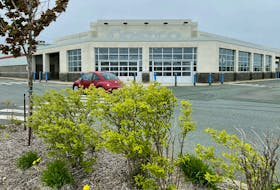Aimé Hirwa just turned 22, but he’s already established himself as an integral part of The Royal Newfoundland Regiment’s 1st Battalion in St. John’s.
Now a reservist for four years, Hirwa was recently named one of the “Faces of the 5th Canadian Division”, a campaign to highlight members of the Armed Forces throughout Atlantic Canada.
“It’s a privilege to be able to be representing my peers,” he said.
Hirwa was born in Kigali, Rwanda, in 1996, just two years after the mass murder of Tutsi in Rwanda by members of the Hutu majority government. The genocide claimed upwards of one million lives, including Hirwa’s grandfather and aunt.
Hirwa has never seen a photo of his grandfather.
Hirwa’s father, Philippe Basabose, escaped “by miracle” to Burundi during the massacre, but left too quickly to take any mementos of his father.
“The only thing I have that used to be his is one dress he would usually put on when he would go to church on Sundays,” said Basabose. “When I travelled to Rwanda back in 2011, I found it and I took it back with me. It’s the only thing that I have from him now, except the memory. Of course, it doesn’t mean much to my kids, who may see it as a dress like any dress, but for me, it’s much more.”
Basabose returned to Rwanda from Burundi soon after the genocide ended, and Hirwa spent his childhood there.
Hirwa recalls the Rwanda in which he grew up as a relatively peaceful place, with “reconciliation programs all over the country, just to try to move past that and learn from the experience, and never go back.”
Basabose is now department head in Memorial University’s Department of Modern Languages, Literatures, and Cultures. He left Rwanda after earning his undergraduate degree in French language and literature. He immigrated to Ontario in 1999 to complete a master’s degree, and then a doctorate, at the University of Western Ontario.
Basabose accepted a position at Memorial University shortly afterward, and Hirwa would soon join his father in St. John’s in 2012.
Hirwa said his parents are his role models.
“They were not born in fortunate families, but they worked hard to make sure that my siblings and I have a comfortable life. They immigrated to make sure that our upbringing is better than theirs, and we have access to great education and more opportunities than they did growing up.”
Hirwa said he heard the Army Reserves were a good experience for students, so he tried to sign up during his first year at Memorial University. However, he was not yet a Canadian citizen, so he had to wait.
“As soon as I got my citizenship, I came down to the base and got more information.”
Basabose went with his son to the base.
“When he told me he was going to join and he was so young, about 16, my first impression was, ‘Oh, why the army? Why don’t you go to university and do your studies?’ and he told me, ‘No, I can do both.’ So, then I said, ‘If that’s what you want, go ahead and try it.’ But suddenly, afterwards, when I saw how dedicated he is, then I said he definitely made a good choice.”
Basabose said his experience in Rwanda also helps him to see the importance of joining the Forces.
“Personally, given what I lived through in Rwanda in 1994 especially, at the time of the genocide, and the aftermath of the genocide, and the way the international community did not react — what happened to us, it makes me realize the significance of joining the army.
“What I have in mind especially is the Canadian, Lieut.-Gen. Romeo Dallaire, who was in Rwanda at the time, and whom I have had several occasions to talk to. Someone who I personally take for a hero, even though he doesn’t accept that label because he thinks that what he did was just being human, and living up to that responsibility of being human towards others.
“But his decision that he took to stay in Rwanda while the UN was asking him, and the forces he was the commander of, to leave the country — that’s something very brave, that actually gave some results, because us people were saved thanks to that.
“Sometimes I go to some high schools here in St. John’s talking to students about the genocide in Rwanda. What I tell them is, you don’t have a genocide to prevent here, but genocide is the result of unaddressed human rights violations, and that we are dutiful now as human beings to make peace with whoever we live with. That’s one of the lessons we can get from a past we cannot undo.”
Hirwa’s father, Philippe Basabose
“So, I understand the necessity of joining the army, given especially the world we live in where human rights are violated.”
Basabose said meeting Dallaire was “so emotional”.
“Because I knew him as this kind of historical figure, but being able to meet him in person, shake hands, and listen to his view on what happened in Rwanda, his role in the events, what he could do and what he was not able to do, it’s something really amazing, especially when you think about the consequences of what he went through on his daily life.”
Basabose said life in Rwanda at that time is hard for him to describe.
“When you get caught up in a situation where you escape, I’d say by miracle, and you lose almost all members of your family, you know, it’s something that changes life forever…not only you don’t see the world the way you used to see it, you don’t see the other the way you would see them.
“It’s a terrible experience, but at the same time, from any experience, the lessons one can learn.”
Basabose said this is something he thinks is important to talk about with his children.
“It is a terrible past but it’s their past, too.”
“You have to talk to them about that, so they may know how far humanity can go both in bad and good, because despite that terrible past, we managed to live our lives, I’d say, in a different way.
“There’s many things that helped along the way – among the things, friendship. That man can be bad, but at the same time you experience good from man as well, and that gives you some strength to go on.
“Also, that sense of responsibility. Knowing that, yes, others can help, others can come to the rescue, but at the same time, at the end of the day, it’s you who’s responsible for your life and for your future. And that is something that I want to get my kids to know. Being responsible for yourself, but also for others.
“Sometimes I go to some high schools here in St. John’s talking to students about the genocide in Rwanda. What I tell them is, you don’t have a genocide to prevent here, but genocide is the result of unaddressed human rights violations, and that we are dutiful now as human beings to make peace with whoever we live with. That’s one of the lessons we can get from a past we cannot undo.”
Hirwa said that while his Rwandan roots were not at the forefront of his mind when he joined the Reserves, the more he learns about peacekeeping missions, and reflects on the experiences of his family, the more interested he is in participating in a peacekeeping mission.
“That’s why some of us join the army, is to try to do something for change, and that would be something on my ‘to do’ list for sure.”
Basabose said he is proud of his son’s dedication to his work in the Reserves.
“If he can make a difference in any way in helping whoever’s human rights may be violated, I think that would be a way of answering to that past.”
Hirwa still has to finish his degree in psychology at Memorial University, all the while continuing with his work in the Reserves, but he sees his future in the Canadian Army. His goal is to pursue a law degree and become a legal officer in the Canadian Armed Forces.
Meanwhile, he said it is important to him that we learn from history.
“(To) look back and acknowledge the progress that has been achieved, and evaluate what can be done to reach an even better society where we do not let our differences divide us.”
Twitter: @juanitamercer_

